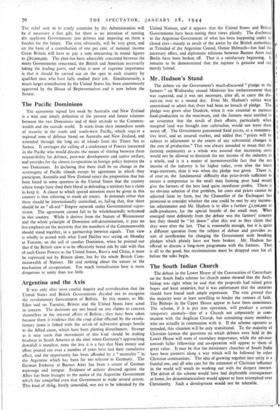The South Indian Church
The debate in the Lower House of the Convocation of Canterbury• on the South India scheme for church union showed that the Arch- bishop was right when he said that the proposals had raised great hopes and keen anxieties, but it was unfortunate that the anxieties should have found such ample expression. The vote proved that the majority were at least unwilling to hinder the venture of faith. The Bishops in the Upper House appear to have been unanimous. The scheme, if it is put into operation, will produce a certain temporary anomaly—that of a Church not corporately in com- munion with the Anglican Church, but containing many members who are actually in communion with it. If the scheme operates as intended, this situation will be only transitional. To the majority of Christian laymen the questions on which debates were held in the Lower House will seem of secondary importance, while the advance towards fuller fellowship and co-operation will appear to them of great value. It may be that the missionary churches of South India have been pioneers along a way which will be followed by other Christian communions. The idea of growing together into unity is a fruitful one, and all who care for the extension of Christian influence in the world will watch its working out with the deepest interest. The defeat of the scheme would have had deplorable consequences at home, for denominationalism would appear to have triumphed over Christianity. Such a development would• not be tolerable.


























 Previous page
Previous page